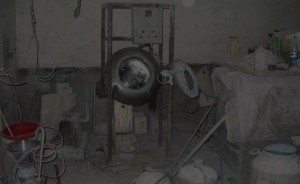 Prescription drugs often follow a long path, through wholesalers and re-packagers, before reaching pharmacies, and ultimately consumers. Counterfeit drugs, however, are typically not produced under safe manufacturing conditions and they are not inspected by regulatory authorities. Therefore, it can be impossible for consumers to know how and where these drugs are made, and what ingredients they actually contain.
Prescription drugs often follow a long path, through wholesalers and re-packagers, before reaching pharmacies, and ultimately consumers. Counterfeit drugs, however, are typically not produced under safe manufacturing conditions and they are not inspected by regulatory authorities. Therefore, it can be impossible for consumers to know how and where these drugs are made, and what ingredients they actually contain.
Drug manufacturers in the U.S. are required to follow Good Manufacturing Practices (GMP) under the Federal Food, Drug and Cosmetic Act. According to the U.S. Food and Drug Administration (FDA), “Rigorous adherence to good manufacturing practice minimizes the risk of adulteration or misbranding of drugs and cosmetics.” These stringent standards go a long way in ensuring the safety and reliability of prescription drugs in the U.S.
Most counterfeit medicines are produced overseas in non-GMP conditions, such as China and Middle Eastern and African countries. They are often made in uncontrolled or street laboratories, because quality assurance or manufacturing standards have never been implemented in these countries.
How can the problem of developing countries producing counterfeit drugs be remedied? Experts in a CNBC report on the topic make the following suggestions:
- These countries need trustworthy agencies to regulate and distribute drugs;
- Governments need stiffer penalties for counterfeiters and better enforcement;
- Doctors and patients need to recognize the issue, and
- The technology that detects fake and substandard drugs needs to be cheaper and more robust.
One of the companies directly combating these clandestine drug labs is Pfizer. They recently conducted raids of known drug labs in coordination with local authorities. The conditions in these labs have been described by Pfizer as “deplorable,” citing mold on the walls and “dirt all over the place.” In response, Pfizer created an international team, which has helped to increase cooperation with law enforcement agencies to prosecute counterfeiters, and promote public policy that will help eliminate counterfeiting.
At a time when counterfeit pharmaceuticals are flooding the global market, CSIP and its members are working together to educate the public about the need for caution when purchasing drugs online.
####
The Center for Safe Internet Pharmacies (CSIP) and our 13 member companies have the shared goal of helping address the growing problem of consumer access to illegitimate pharmaceutical products on the Internet. Continue to read this blog for updates on CSIP’s education, enforcement and information-sharing efforts.

